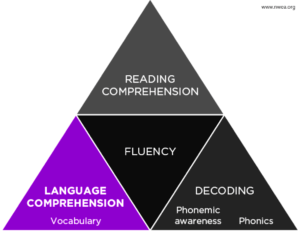
Especially during times of significant change – be it relocation, divorce, global crisis, new school, or the arrival of a new family member – rereading a cherished book can provide stability to a child that the external world may not.
Why Less Can Be More: The Scientific Case for Repeated Reading
In the words of Jessica S. Horst, from the School of Psychology at the University of Sussex, “it’s not the number of books, but the repetition of each book that leads to greater learning.” This repetition allows children to pick up new information with each reading, aiding in vocabulary acquisition and comprehension.
Studies have shown that rereading contributes to the expansion of a child’s vocabulary. Children, particularly during their formative years, are rapidly developing their vocabularies, and revisiting books is one of the simplest methods to aid in this growth.
Just as you wouldn’t expect a child to master walking after just a few steps, vocabulary acquisition thrives on multiple exposure to words and phrases. A 2011 study demonstrated that preschool children learned more words when reading the same three storybooks repeatedly, compared to children who were exposed to nine different storybooks. Although variety is important for children when it comes to learning and brain development, it turns out that when it comes to vocabulary development, revisiting the same few books several times is key.
Unlocking Language Skills Through Repetition
As such, it’s no surprise that rereading aids in the comprehension of language and reading mechanics. We can easily distinguish between a reader who painstakingly deciphers each word aloud and one who effortlessly reads with rhythm and flow. Proficient reading extends beyond mere word recognition; it involves understanding the nuances of language, and rereading can help with this.
“What we think is happening with reading is that each time a child hears the book they are picking up new information. The first time it might just be the story, the second time they are noticing details of description, and so on. If the new word is introduced in a variety of contexts children are less likely to focus on the new word.” – Jessica S. Horst, School of Psychology, University of Sussex
Whether listening to a parent read aloud the same book repeatedly or revisiting it independently, children develop an innate understanding of language structure and storytelling elements.
Fostering Confidence Through Fluent Reading
We all aspire for our children to read fluently, without stumbling over every word. Rereading also promotes fluency and cultivates confidence in young readers. A child who reads fluently, possesses an extensive vocabulary, and comprehends the story will naturally exude confidence in their reading abilities. Since rereading fosters the development of all these skills, the more children revisit their favorite books, the more confident they become as readers.
Rereading also enhances comprehension skills. A common concern among parents is their child’s comprehension ability. While many children excel at decoding words, grasping the deeper meaning of the text can be challenging. Rereading acts as a powerful tool to bolster comprehension. With each revisit, children can delve deeper into the plot, characters, and literary elements, shifting their focus from reading mechanics to understanding the narrative.
Rereading not only fosters a sense of identity as readers, but also creates lasting memories. Encouraging children to revisit their favorite books without judgment or restriction nurtures a positive association with reading, strengthening the bond between parent and child. As the pages of beloved stories are turned time and again, cherished moments are etched into memory, ensuring that the books shared repeatedly become treasured mementos in the tapestry of family life.
The act of rereading offers profound benefits, providing comfort, stability, and cognitive development for both children and adults. From fostering vocabulary acquisition and comprehension skills to promoting fluency and confidence in young readers, revisiting cherished books nurtures a lifelong love for literature. Moreover, rereading cultivates a sense of identity and belonging as readers, creating lasting memories and shared experiences that transcend the pages. Let us embrace the magic of rereading, knowing that each cherished story holds the power to shape minds, hearts, and futures.
An avid book reader and proud library card holder, Angela is new to the world of e-Readers. She has a background in education, emergency response, fitness, loves to be in nature, traveling and exploring. With an honours science degree in anthropology, Angela also studied writing after graduation. She has contributed work to The London Free Press, The Gazette, The Londoner, Best Version Media, Lifeliner, and Citymedia.ca.






